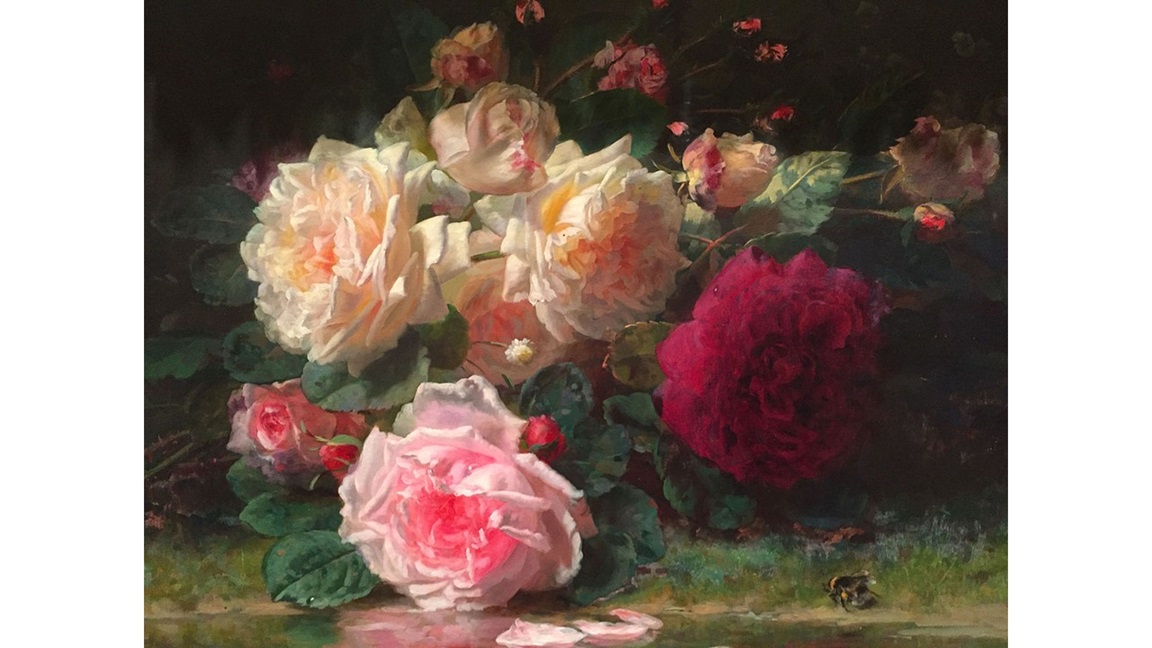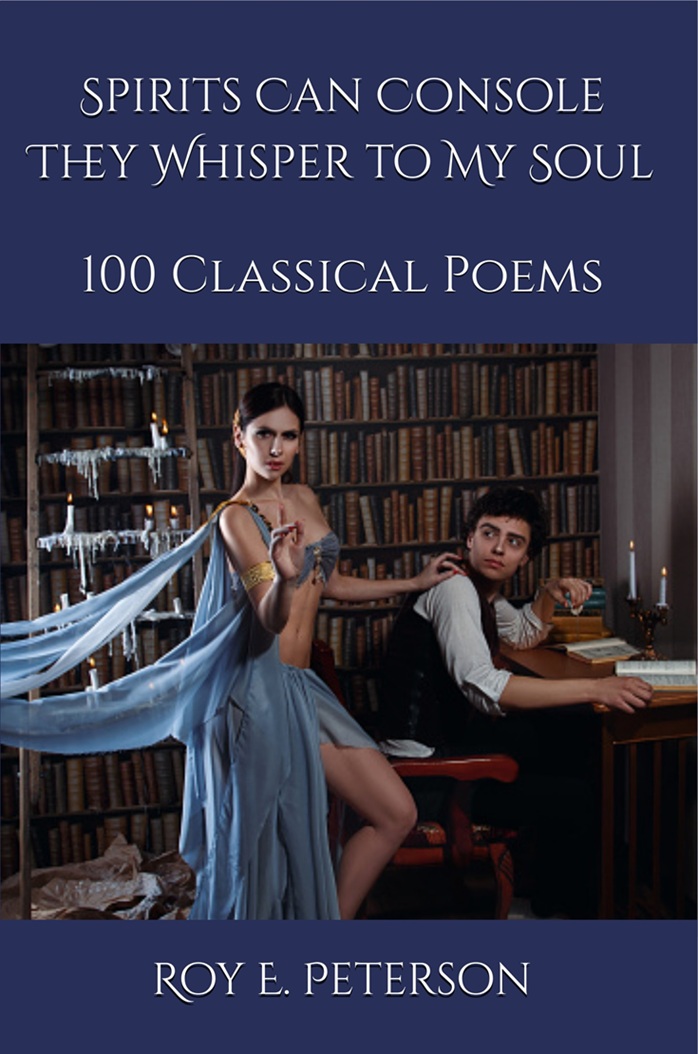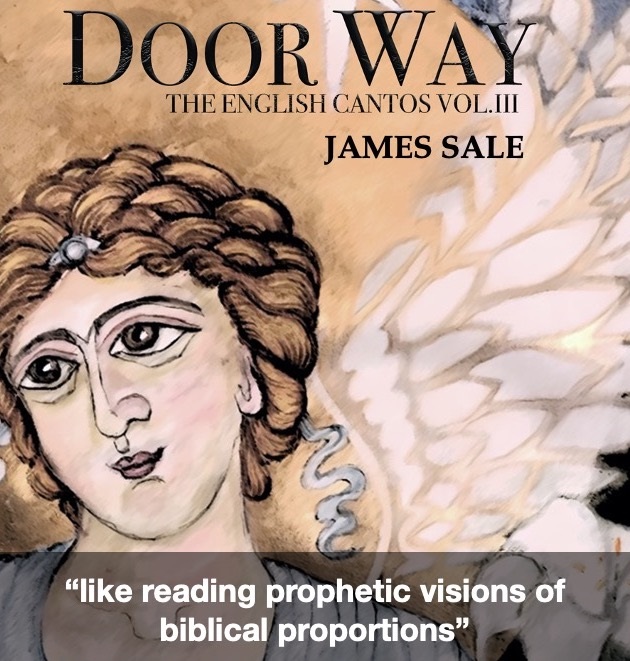.
Solitaire
A fresh tableau gives hope of gaining traction
In the builds. Shortly, though, you see you’re beat.
It’s like life: strangely rich the satisfaction
Of having dealt your own unique defeat.
.
.
Bird Brain
I’d settle for an avian brain
If in the bargain came the gift
Of my own syrinx (not of cane)
And vanes enough to give me lift
Up into purer air that stops
The speeding heart in headlong flight
That slights and teases earthbound props,
Coursing to every bend and bight
Of airborne rapture’s overflow.
I’d draw that air into my nares
(The little my small frame can stow)
And trill it out in song that carries
Men’s hearts away. My flight and song
Would outstrip any hidebound mind,
Leaving poets to get me wrong
Or, at their best, slipstream behind.
.
.
Stephen M. Dickey is a Slavic linguist at the University of Kansas. He has published widely on Slavic verbal categories, and has published translations of Bosnian, Croatian, and Serbian fiction and poetry including Meša Selimović’s Death and the Dervish, Borislav Pekić’s How to Quiet a Vampire, and Miljenko Jergović’s Ruta Tannenbaum. He has published poetry in various journals including Shot Glass Journal, Trinacria, The Lyric, Rat’s Ass Review, Lighten Up Online, Better Than Starbucks, Asses of Parnassus, and Blue Unicorn

















I am one of those left behind in the “slipstream,” although I do not consider myself “hidebound.” In “Solitaire,” I was left behind with the phrase, “in the builds,” perhaps a solitaire term for the piles that are stacked. The poem though is clever with “strangely rich the satisfaction/Of having dealt your own unique defeat.” In “Bird Brain,” I presume you are referencing the location of the vocal cords of a bird and not the cerebral/spinal cyst. I was left behind in the slipstream again with this reference and the “(not of cane).” Oh, if we only had the wings of an eagle and the songs of the songbirds.
Your disapproval comes through loud and clear. That’s fine. But finding out what builds are is as easy as writing your complaint (search “builds” + solitaire); I had occasion to learn that term once, and it didn’t occur to me to get indignant about it.
Birds have no vocal cords; they have a syrinx with walls that vibrate. I was distinguishing their syrinxes from mythological/man-made syrinxes with the phrase “not of cane”.
If you take “Bird Brain” personally, that’s your own choice; the poet writing the poem is slipstreaming in the best case, but is not indignant about it.
Dvořák, better at his art than all but the greatest poets are at theirs, was of the view that no composer could hold a candle to songbirds. It’s a rather harmless sentiment for anyone who is not looking to be chafed.
Stephen, I was not expressing disapproval. I mentioned the word, “clever,” for the ending of the first poem that indicated approval. Thank you for explaining “builds,” which was an unknown term to me in playing solitaire, though I presumed correctly. I am still perplexed by “not a cane.” My final sentence should be considered as showing approval, also, by joining in on the flying and the singing.
Roy, it was hard for me to read your another way, sorry for jumping to conclusions. I guess “not of cane” is too elliptical. The intended meaning was this: ‘I would like to get my own avian syrinx, not one made of cane’.
Being a solitaire afficionado, I enjoyed your poem on the topic.
Thanks for your note. Apart from the poems I have written, solitaire is the most powerfully addictive non-chemical waste of time I can think of. I wish I could have done justice to the futility of the intense, rear-guard concentration needed to keep playing.
Stephen, I admire the way your unique and unusual diction reflects the speaker’s insider perspective on the topic. The solitary experience of transcendence is perfectly emphasized in the closing of ‘Bird Brain.’ There is a Rilkean element to your work that is perhaps not fully appreciated, in the way your everyday imagery and symbolism evokes deeper philosophical reflections.
Thank you Andrew. “Bird Brain” started out with the realization that if every morning when I got out of bed I could jump off and have the adrenaline rush of a fighter pilot all day long, I would have no need for big ideas.
I got a kick out of your tongue-in-cheek discussion of Cioran’s lifestyle from your recent poetry-as-a-vocation video. I was going for some Cioran-lite in “Solitaire”.
Your “syrinx (not of cane)” trope came through loud and clear for me & I didn’t lose a beat, but I did end up thinking that your poem had matched the wonder of “High Flight” while still seeming not at all derivative, but a case of parallel evolution. I can envision the two poems flying aloft in gladness side by side.
Thank you for the kind comment and the recommendation. Alas, I have never heard of “High Flight,” I will make sure look it up, am very intrigued.
Though perhaps a bit too rarified for common taste, these poems I find to be excellent examples of fiddling with language in order to stimulate higher brain functions. There’s nothing at all demotic about them.
Thank you, Kip. That common taste must exist, but I wouldn’t know it if it licked me.
HIGH FLIGHT
Oh! I have slipped the surly bonds of Earth
And danced the skies on laughter-silvered wings;
Sunward I’ve climbed, and joined the tumbling mirth
Of sun-split clouds, — and done a hundred things
You have not dreamed of — wheeled and soared and swung
High in the sunlit silence. Hov’ring there,
I’ve chased the shouting wind along, and flung
My eager craft through footless halls of air….
Up, up the long, delirious, burning blue
I’ve topped the wind-swept heights with easy grace
Where never lark, or even eagle flew —
And, while with silent, lifting mind I’ve trod
The high untrespassed sanctity of space,
Put out my hand, and touched the face of God.
by John Gillespie Magee Jr, – a WWII Canadian Royal Air Corps fighter pilot. He died in a crash while still in training.
I remember this now, it was impossible not to have read it growing up near McConnell AFB. I had forgotten title, poet and all but the killer last line in the meantime. It’s a truly humbling poem of the human spirit. Thanks for shining a light back on it for me.
“Bird Brain” sounds like one-upmanship on many poets who have written bird poems. If you’d rather not be a nightingale or a skylark, this is the way to fly. Fresh and ambitious of you, Stephen. As for solitaire, describing self-dealt self-defeat as satisfaction is indeed “strangely rich.” Mahjongg for me, but your poems are very much worth the reading.
“Bird-Brain” was not intended as “one-upmanship,” but as a comment on the human condition. I would think or hope that Shelley would understand.
Sometimes words offer an interpretation the writer did not intend. In rich poetic language, that is often bound to happen. Please take my reading as a compliment on your achievement.